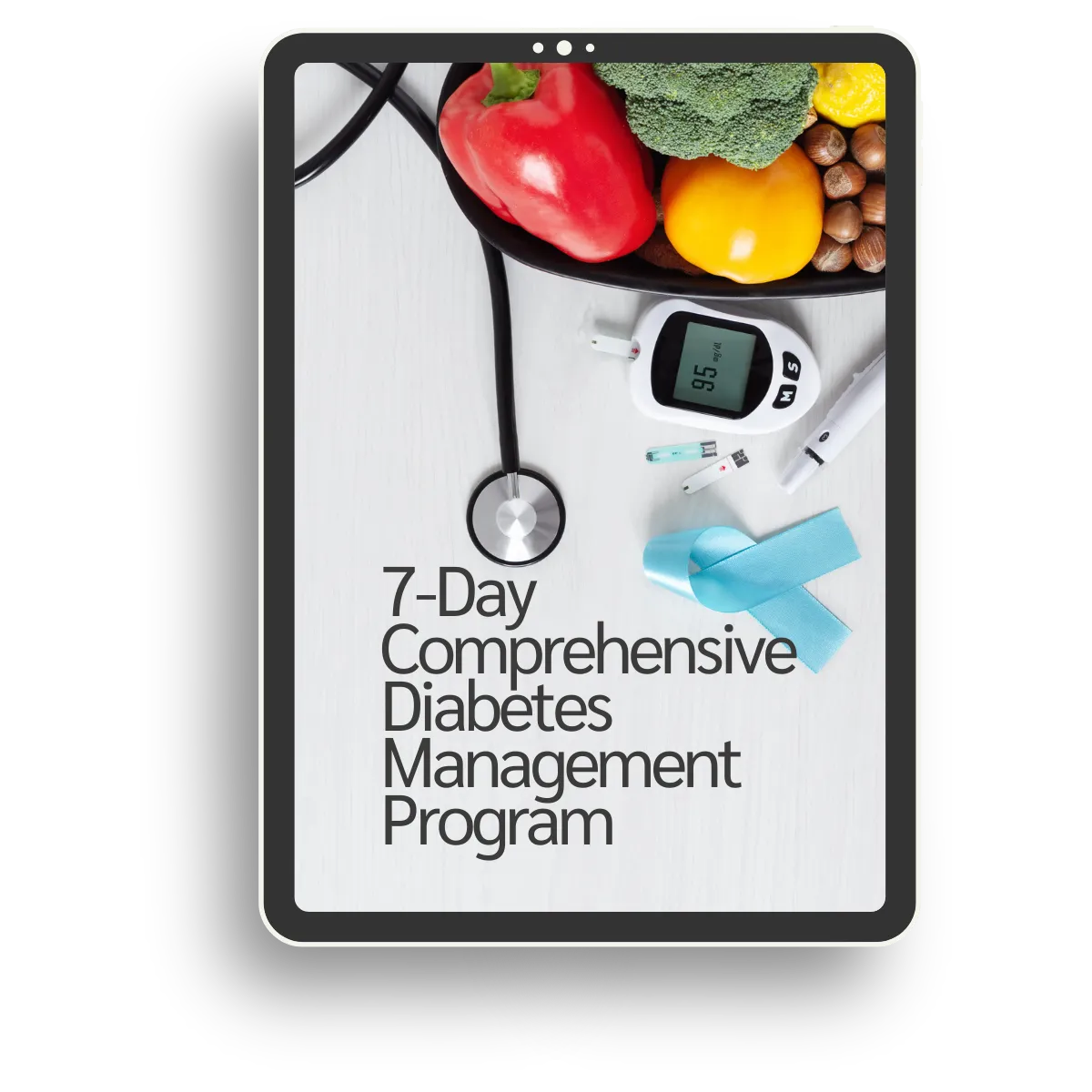Diabetes Danger Zone: Your Risk Unveiled & How to Fight Back!" Are You at Risk for Diabetes? Unveiling the Truth and Taking Control

Why Your Diabetes Risk Matters
In a world where health risks are evolving faster than ever, there's one adversary that's reaching epidemic proportions: Diabetes. The rate of diabetes has risen dramatically since 1970.
-
Diabetes: Over 34 million Americans have diabetes, this is about 10.5% of the U.S. population.
-
Prediabetes: Over 88 million Americans have prediabetes, indicating a higher risk of developing type 2 diabetes if lifestyle changes are not made.
-
At Risk for Diabetes: At last count, over two years ago, the total number of people at risk for diabetes, in America, is around 122 million.
We have a tendency to look at numbers like this and think “That’s not me. That’s the other guy.” So why should you be concerned about your risk for diabetes? The answer is stark: your life and the quality of your life are on the line. Your 401k might not help much if your health is poor. Fortunately, you're taking the time to invest in yourself and your future health through self-education.
You no longer live deep in the shadows of the uninformed who have a high diabetes risk because you have taken note of the enemy and you are taking action. In this article, we will illuminate your susceptibility, clarify why your attention is crucial, what pivotal information you need, and how you can seize control of your health destiny.
Why Does This Matter to You?
Imagine having the power to predict your own health future. Understanding your diabetes risk isn't just important; it's vital. Statistics reveal that over 34 million Americans have diabetes, with a staggering 88 million more teetering on the edge of prediabetes. That's nearly 1 in 3 people facing an uncertain health journey. If you add those who are at risk, the number is closer to 50%, and if you add other diseases that have similar risk factors you have over a 70% chance of developing a disease that has the potential to ruin all of your best-laid plans for a wonderful future. We don’t say this to scare you. It’s simply the direction we are going as a society. Fortunately, ,it’s not too late. There are simple steps you can take now to change course. Even if you are one of the lucky few outside of these risk profiles, the things you learn below have the potential to add life to your years and years to your life. If someone offered you a map that led to a hidden treasure? Would you take it? What if the map led to simple, sustainable solutions to avoiding a life overshadowed by disease?
You're wondering, what can I do? You’re already taking the first step. Your educating yourself so that you can make informed choices. So what are the facts and what can you do about it? Three areas paint the portrait of your risk: genetics, lifestyle, and medical history. First, let’s take a brief peek into the science behind your susceptibility.
Genetics
As your DNA intricately weaves your fate, genetics can play a powerful role in your diabetes risk. But that isn’t the full story. For decades we have been told to brace ourselves because genetics can increase our risk by up to 90%. Groundbreaking genetic testing has lifted the veil on the reality of this predisposition risk.
While genetics do play a significant role in determining an individual's susceptibility to diabetes, there are indeed arguments against genetics being the sole determinant of diabetes risk. Here are a few perspectives that provide counterarguments:
-
Epigenetics and Lifestyle: Epigenetics refers to changes in gene expression that are influenced by environmental factors, including lifestyle. Even if you have a genetic predisposition to diabetes, your lifestyle choices can impact whether those genes are activated. In other words, your lifestyle can turn "on" or "off" the genes that contribute to diabetes risk. This suggests that while genetics set the stage, your choices and environment can heavily influence the outcome.
-
Rise in Type 2 Diabetes Cases: The rapid increase in type 2 diabetes cases over recent decades cannot be solely attributed to genetic changes within such a short span of time. Lifestyle factors, including diet, physical activity, and obesity, have been major contributors to this rise. This implies that the rise in diabetes is largely due to environmental and behavioral factors.
-
Ethnic Disparities: While genetics can contribute to differences in diabetes risk among various ethnic groups, the rapid increase in diabetes rates among certain populations cannot be solely attributed to genetics. Cultural and lifestyle changes, including dietary shifts and sedentary habits, have played a significant role in these disparities.
-
Changing Patterns in Immigrant Populations: Studies have shown that immigrant populations moving from countries with lower diabetes rates to countries with higher rates tend to adopt the higher risk levels of their new environment. This suggests that environmental and lifestyle factors have a substantial impact on diabetes risk.
-
Reversibility through Lifestyle Changes: Individuals with a genetic predisposition to diabetes can often significantly reduce their risk by making healthy lifestyle changes. Weight loss, regular physical activity, and a balanced diet have been shown to prevent or delay the onset of diabetes, even in individuals with genetic susceptibility.
In conclusion, while genetics play a role in diabetes risk, they do not provide a complete explanation. The interplay between genetics, lifestyle, and environmental factors is complex. It's important to recognize that lifestyle changes have a substantial impact on diabetes risk, and focusing solely on genetics could undermine the importance of preventive measures and lifestyle interventions.
Lifestyle Choices
Your choices are shaping your diabetes destiny. The stark truth is that an unhealthy lifestyle can elevate your risk by up to 70%. That means if 10 people with a risky lifestyle were gathered, a staggering 7 would face the threat of diabetes. Prepare to discover how your dietary decisions, sedentary habits, and excess weight conspire against you, and how taking charge can rewrite your fate.
Preventing or reversing diabetes involves making significant lifestyle changes that can positively impact your health. Here are some key lifestyle choices you can make:
-
Healthy Diet:
-
Choose Whole Foods: Focus on whole, unprocessed foods like fruits, vegetables, whole grains, lean proteins, and healthy fats. Minimize consumption of processed foods, sugary snacks, and sugary beverages.
-
Control Carbohydrates: Monitor your carbohydrate intake and choose complex carbohydrates with a low glycemic index. These help stabilize blood sugar levels and provide sustained energy.
-
Portion Control: Be mindful of portion sizes to avoid overeating, which can lead to weight gain and blood sugar spikes.
-
-
Regular Physical Activity:
-
Aim for Regular Exercise: Engage in at least 150 minutes of moderate-intensity aerobic exercise per week, along with strength training exercises at least twice a week.
-
Stay Active: Incorporate physical activity into your daily routine. Take walks, use stairs instead of elevators, and find enjoyable activities like dancing or swimming.
-
-
Weight Management:
-
Maintain a Healthy Weight: If overweight, losing even a modest amount of weight (5-10% of your body weight) can significantly improve insulin sensitivity and reduce diabetes risk.
-
Focus on Sustainable Changes: Avoid crash diets; instead, make gradual, sustainable changes to your eating and exercise habits.
-
-
Stress Management:
-
Practice Relaxation Techniques: Engage in activities like meditation, deep breathing, yoga, or mindfulness to reduce stress levels.
-
Adequate Sleep: Aim for 7-9 hours of quality sleep each night, as sleep deprivation can affect insulin sensitivity and blood sugar control.
-
-
Limit Alcohol Intake:
-
Moderation is Key: If you drink alcohol, do so in moderation. Limit your intake to no more than one drink per day for women and two drinks per day for men.
-
-
Quit Smoking:
-
Kick the Habit: If you smoke, quitting is essential. Smoking is linked to an increased risk of diabetes and complicates its management.
-
-
Regular Medical Check-ups:
-
Monitor Your Health: Regularly check your blood sugar levels, blood pressure, cholesterol, and other relevant health markers. This helps you track your progress and catch any potential issues early.
-
-
Stay Hydrated:
-
Drink Water: Opt for water over sugary beverages. Staying hydrated is essential for overall health and can help control appetite.
-
-
Healthcare Team:
-
Collaborate with Professionals: Work closely with your healthcare provider, including a doctor, dietitian, and possibly an exercise specialist. They can help tailor a plan to your specific needs.
-
Remember, the goal is to create a sustainable lifestyle that supports your overall well-being. Making gradual changes and seeking support from professionals, friends, and family can greatly enhance your success in preventing or managing diabetes. Always consult your healthcare provider before making significant changes to your diet or exercise routine, especially if you have any underlying health conditions.
Medical History
Your past can cast a long shadow over your future. Brace yourself for the fact that having high blood pressure doubles your risk, and a history of gestational diabetes can triple it. That's like turning a manageable risk into a game of chance, with every third card dealt holding the threat of diabetes. We'll unearth how your medical history isn't just a record; it's a prophecy you can influence.
Your medical history can have a significant impact on your diabetes risk. Various factors within your medical history can influence your susceptibility to developing diabetes. Here are some ways in which medical history plays a role:
-
Family History: A family history of diabetes can increase your risk. If you have close relatives, such as parents or siblings, with diabetes, your risk is higher. Genetics can play a role, but shared lifestyle and environmental factors within families also contribute to this risk.
-
Gestational Diabetes: If you had gestational diabetes during pregnancy, you are at an increased risk of developing type 2 diabetes later in life. This indicates an underlying tendency toward insulin resistance that can persist beyond pregnancy.
-
Polycystic Ovary Syndrome (PCOS): Women with PCOS have an increased risk of insulin resistance, which can lead to type 2 diabetes. If you have PCOS, your medical history indicates a higher risk.
-
High Blood Pressure (Hypertension): High blood pressure is a common comorbidity with diabetes. Having a history of hypertension can increase your diabetes risk, as both conditions share similar risk factors, such as obesity and a sedentary lifestyle.
-
Cardiovascular Disease: A history of cardiovascular disease, including heart attacks and strokes, is linked to an increased risk of diabetes. These conditions often share risk factors and underlying mechanisms, such as inflammation and insulin resistance.
-
Metabolic Syndrome: This cluster of conditions, including obesity, high blood pressure, high blood sugar, and abnormal cholesterol levels, greatly increases the risk of diabetes. If you have a history of metabolic syndrome, your diabetes risk is elevated.
-
Autoimmune Diseases: Certain autoimmune diseases, such as type 1 diabetes and autoimmune thyroid diseases, can increase your risk of developing type 2 diabetes.
-
Medication History: Some medications, such as certain antipsychotic drugs and corticosteroids, can influence blood sugar levels and contribute to insulin resistance, potentially increasing your diabetes risk.
It's important to note that while your medical history can contribute to your diabetes risk, it's not a guarantee that you will develop the condition. Your medical history provides insights into potential vulnerabilities, but lifestyle factors also play a significant role. If you have a history of conditions or factors that increase your diabetes risk, it's especially important to make proactive lifestyle changes, such as maintaining a healthy weight, exercising regularly, and following a balanced diet, to mitigate that risk. Regular check-ups and discussions with your healthcare provider can help you manage and monitor your risk effectively.
Understanding your risk is just the beginning. Now you have to take action and shift from awareness to empowerment.
Current Diabetes Management vs. the Revolution
We are witnessing a battle between conventional treatment and a seismic revolution in diabetes care. The status quo is not working. Things are getting worse by the day. Much worse. Experts have taken note and have initiated change. Scientifically backed change. The government tried to shift from the food pyramid to “healthy plate” but it’s still not in line with common sense for most people who are trying to manage their risk of disease while living a full and satisfying life. Only 12% of diabetics achieve optimal health. In a room of 10 people with diabetes, a mere 1 stands a chance of full recovery. But there's hope: the current research promises a new dawn with personalized care, harnessing technology to change the game.
Empowerment Through Education
Knowledge is power if you put it to use. Things that are easy to do are also easy not to do. Shocking statistics point out that only 14% of people with prediabetes are aware of their condition. Picture a room of 10 prediabetic individuals; a mere 1 or 2 knows the storm that's brewing within. You have chosen to take the journey into enlightenment, where staying informed can reshape your life's trajectory.
Building Your Support Ecosystem
In the grand theater of diabetes management, you're not alone. The stats underscore how involving a healthcare team can improve your chances by 70%. In a room of 10 people seeking diabetes control, a staggering 7 could gain the upper hand with the right support system. Your support ecosystem plays a dramatic role in your quest for victory over disease.
Seize Your Destiny, Rewrite Your Story
As our curtain call approaches, remember that your diabetes risk isn't a preordained tragedy; it's a saga with untold possibilities. Armed with knowledge and the might of determination, you're the author of your fate. In a world shadowed by statistics, you have the power to redefine the narrative. Your risk for diabetes is not just a number—it's a challenge waiting to be conquered by your unwavering spirit. Today, you stand on the precipice of transformation. The choice is dramatic, the stakes are high, and the victory is yours for the taking. Your future self is watching, ready to applaud your triumphant journey.
We appreciate your engagement and value your input. Feel free to share your thoughts by replying or commenting below. You can also reach out to us via email at diabetesrevolution.com to continue the conversation or leave a review to let us know which topics you would like to explore further. We are eager to connect with you and provide assistance if you're facing challenges with your diabetes management or if you simply want to learn more about how it functions. We encourage you to take advantage of our diabetes workshop and download our FREE guide, "The Simple 7-Day Plan to Help You Lose Weight Quickly, Get Healthy Fast, and Transform Your Life!" While it may not cover every aspect of leading your best life, this guide offers a proven 7-day plan that has delivered results for individuals like you. Visit diabetesrevolution.com to access the guide and start your transformative journey.
Facebook @thediabetesrevolution2020
Instagram @thediabetesrevolution2020
Twitter@TheDiabetesRev





